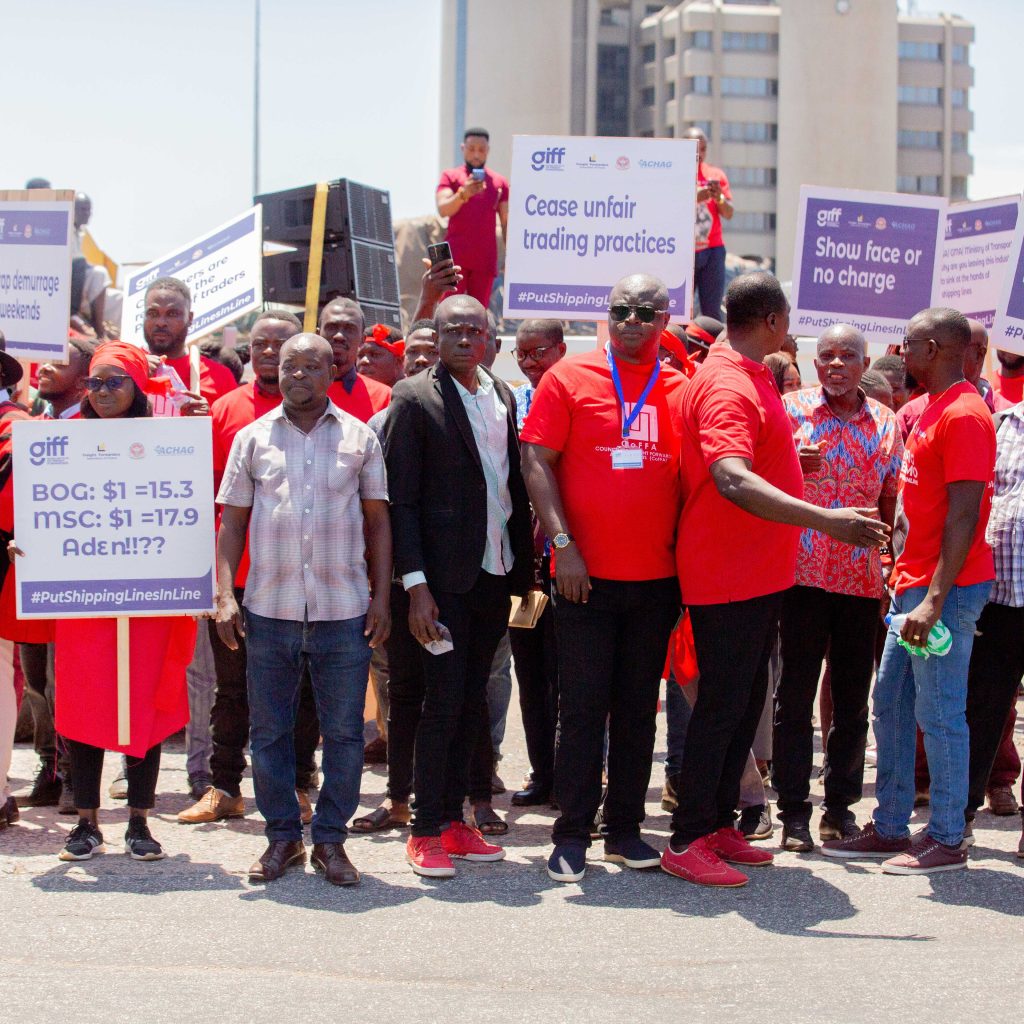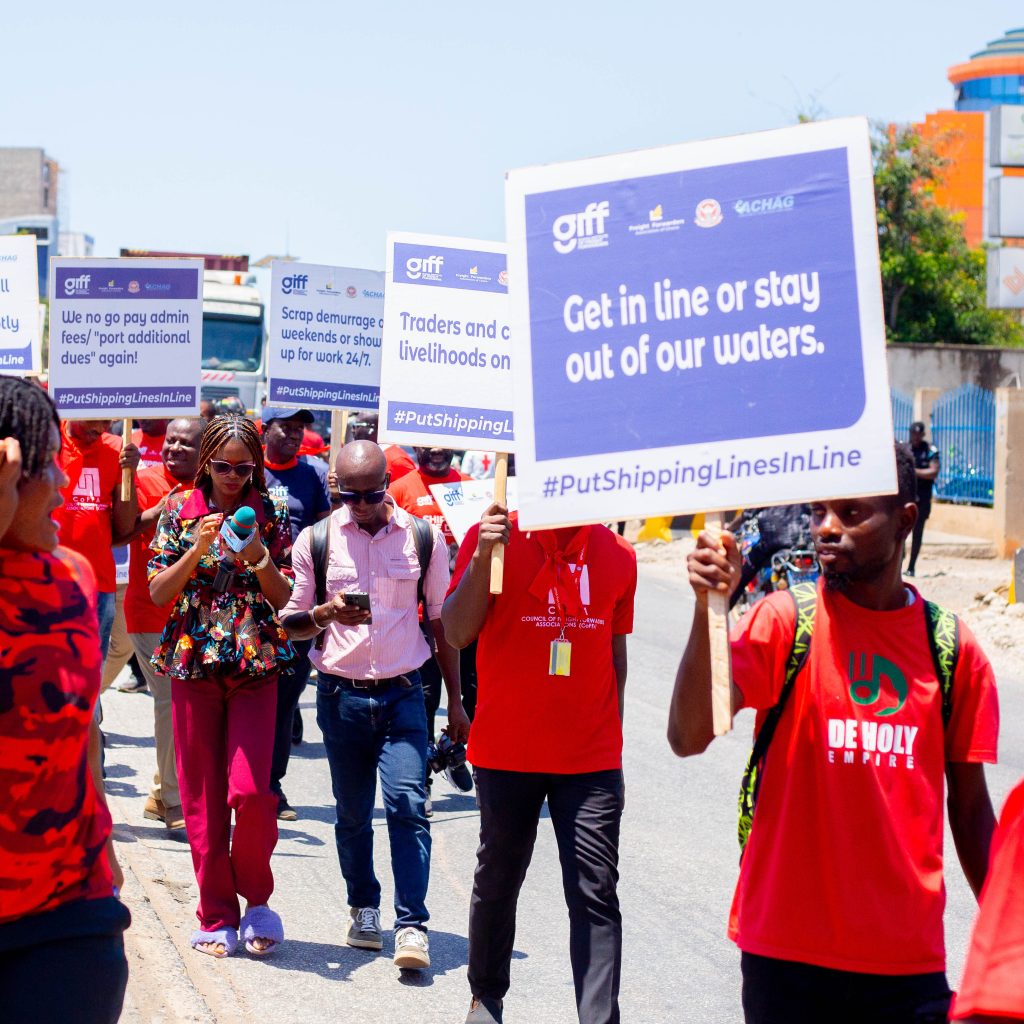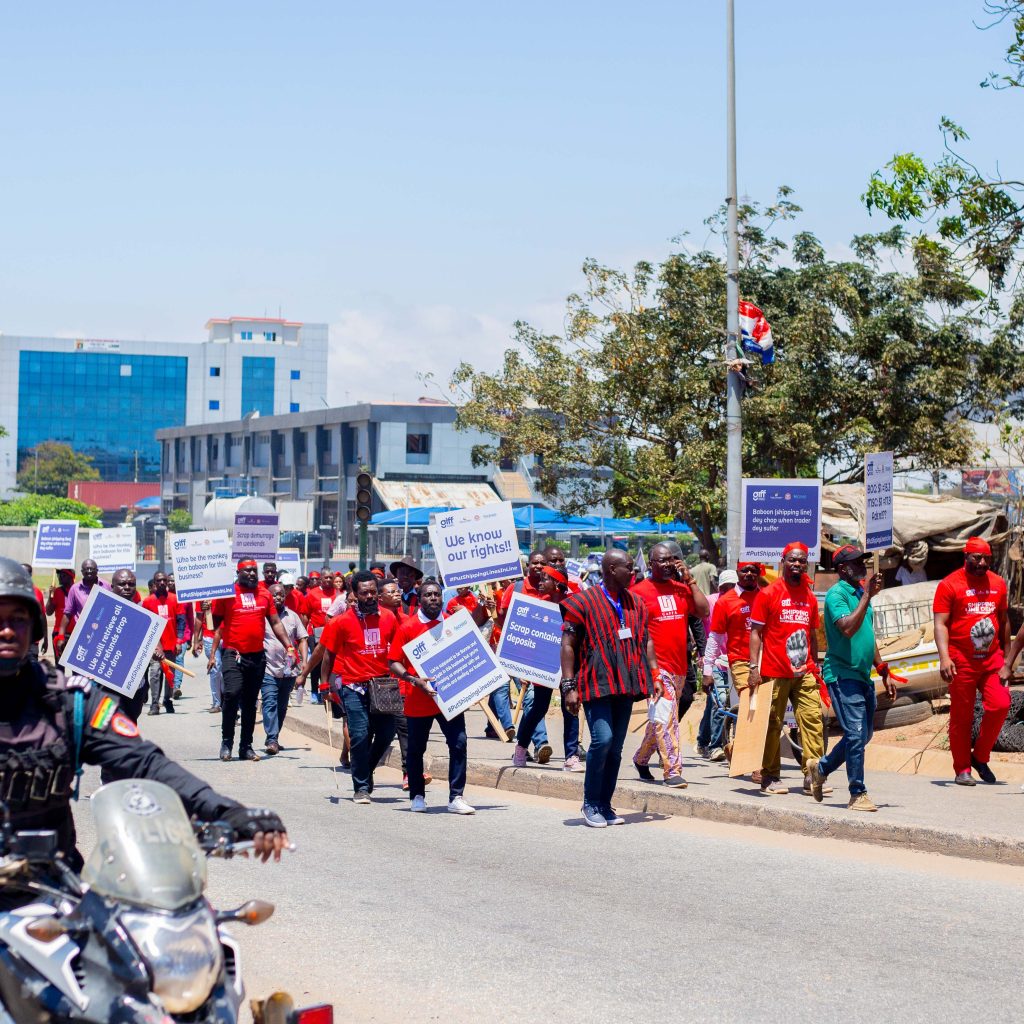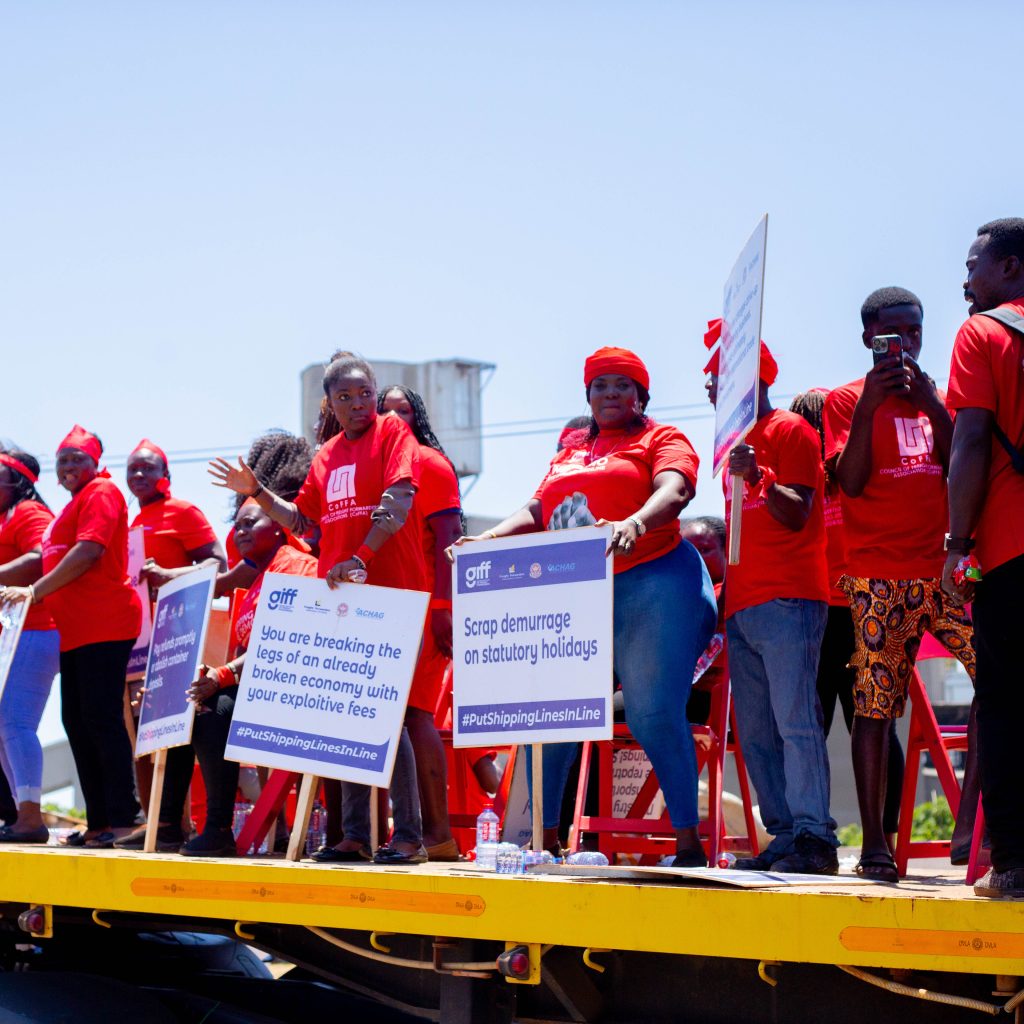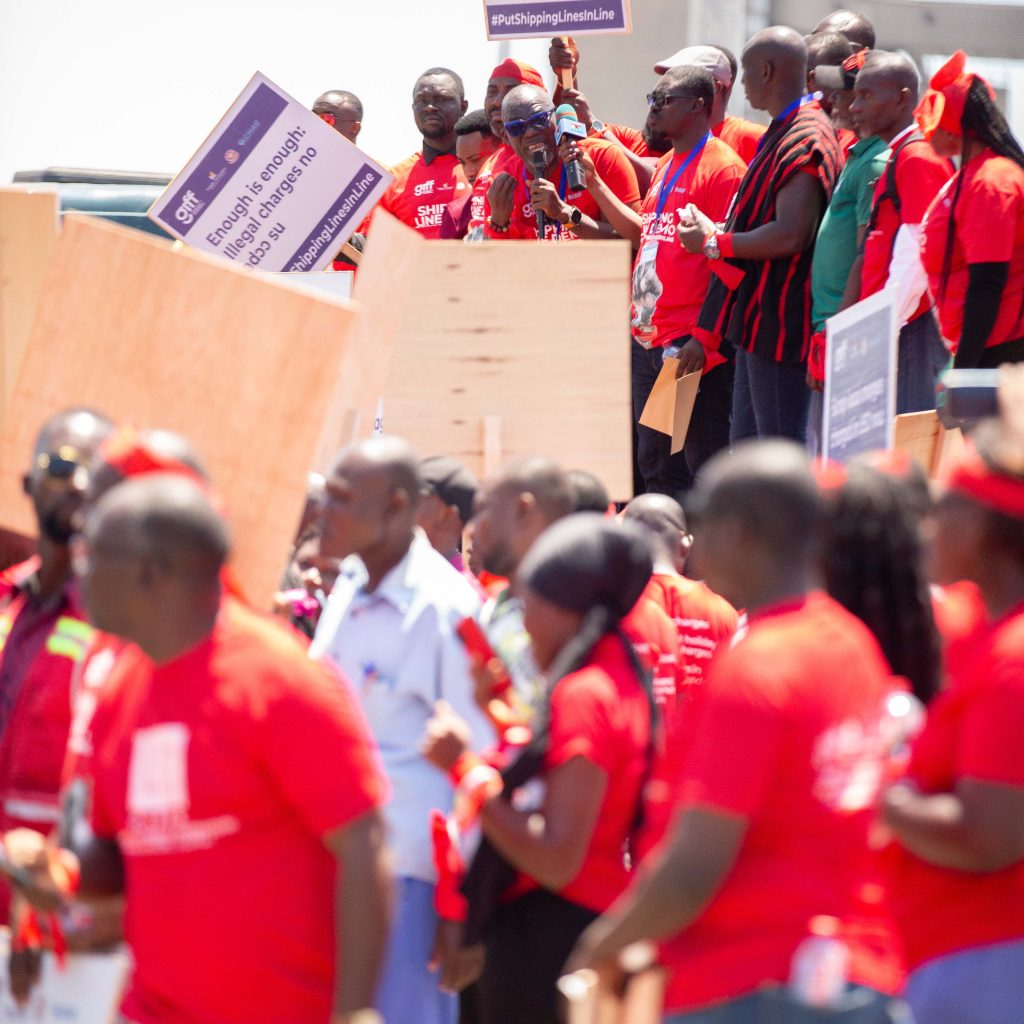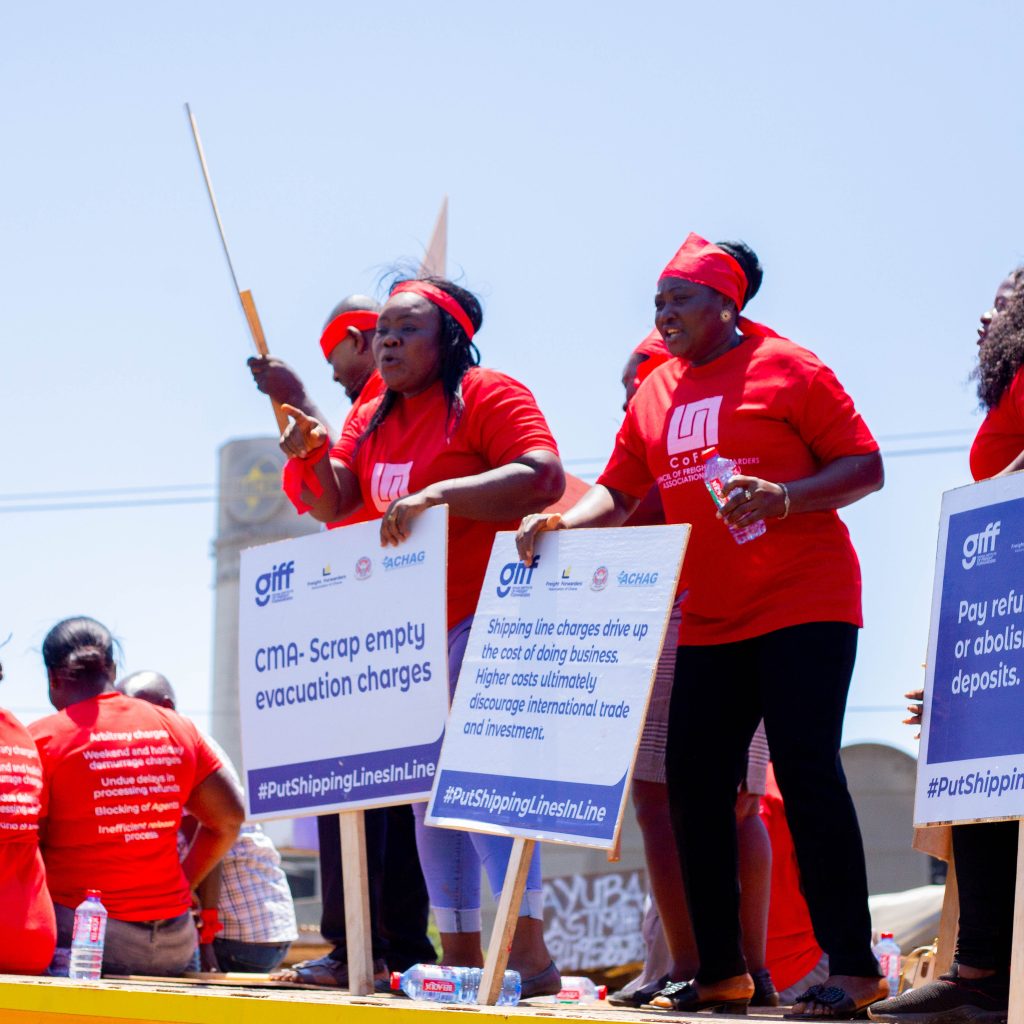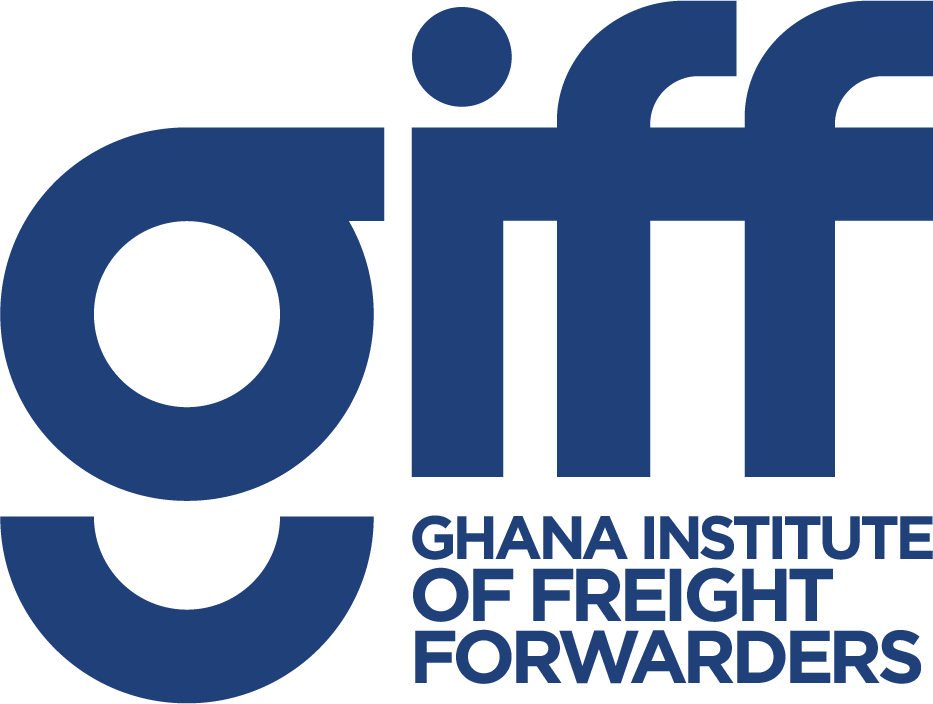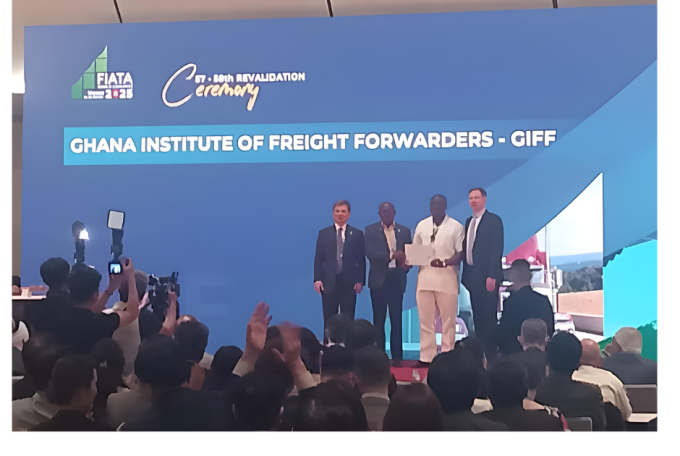For several years, shipping lines have imposed unreasonable, unwarranted and exorbitant fees on importers as local administrative charges, container cleaning fees, empty container fees and demurrage on weekends and holidays. The shipping lines are yet to explain to the Ghanaian trader and consumer why they should continue to pay the unwarranted local administrative charges or whatever name they are called by the various shipping lines. These shipping lines have also refused to file their arbitrary local charges for negotiation with the Ghana Shippers Authority as required by Regulation 5 of the Ghana Shippers Authority Regulations, 2012 (L. I. 2190). This legislative instrument was passed twelve years ago and till date, the shipping lines have refused to abide by it. Meanwhile the freight forwarding fraternity and other entities that are bound by the same provision have complied with it.
These charges, aside having been introduced without negotiations with the Ghana shippers’ Authority, are arbitrary, unjustified and far removed from what pertains in other jurisdictions. At the port of loading, the shipper pays freight, which is determined by pre-voyage estimations also known as voyage estimates. The shipping lines factor in all foreseeable costs from the port of loading to the destination port, and as such, it is extortive to demand additional charges before releasing the cargo. In many other jurisdictions, local administrative charges are non-existent, and even where they have been introduced, the amount is negligible and is charged per bill of lading and not per container as is the practice here.
To appreciate the enormity of this issue, let’s consider this.
The shipping lines levy traders a conservative average of $500 per TEU as local administrative charges. In 2021, one million, five hundred and sixty-two thousand TEUs were received as imports. This amounts to an excess of $781,000,000 collected in illegitimate administrative fees alone. This is the amount the shipping lines are making a year just from the unwarranted local administrative charge for absolutely no work done. Take note that these figures are for the year 2021 and, of course, they are significantly much higher today. Mind you, this does not include other charges such as container cleaning fees, empty container fees and demurrage on weekends and holidays. To make the situation more alarming, these gargantuan sums of illegitimate earnings are repatriated in foreign currency; and this leakage of forex plays a major role in the devaluation of the cedi.
There is also the growing incidence of shipping lines participating in freight forwarding business, specifically customs house brokerage. This is a clear case of abuse of dominance, as they have greater financial muscle to enable them to monopolise the sector and kick the local businesses out. It is a blatant violation of Section 43 (1) of the Customs Act, 2015 (Act 891), which reserves the business of the customs house agent to entities that are wholly owned by indigenous Ghanaians licensed by the Commissioner-General of Customs.
Further to the above, in order to court importers that freight forwarders have nurtured over time, the shipping lines are offering them waivers on the illegitimate local administrative charges and demurrage if they engage them for customs brokerage. These are clearly terms that local freight forwarders cannot offer consignees, putting us at a disadvantage. Furthermore, it is indicative of the fact that these charges are unnecessary, and are simply windfall earnings stemming from the lax regulatory environment in Ghana.
The effect of these illegitimate charges, coupled with other unfair trade practices, is that the cost of importation has skyrocketed and become highly unpredictable, as these fees are quoted in US dollars in violation of the Bank of Ghana’s regulations on the pricing of locally derived services (see NOTICE NO. BG/GOV/SEC/2022/04 from the central bank), invariably at rates even higher than the bank rates. Unsurprisingly, the trader has no option than to transfer these charges onto the price of the product, making goods needlessly expensive.
Many traders have gone into debt due to this unnecessary charge; and many others abandon their cargo at the ports. Government’s objective to reduce the cost of doing business at our ports will forever remain a mirage if these arbitrary charges are allowed to prevail.
Several advocacy efforts and dialogues held over the years aimed at abolishment of these illegitimate charges have been unsuccessful, as the shipping lines have adamantly refused to reason with affected stakeholders. In view of this, the Ghana Institute of Freight Forwarders (GIFF), the Association of Customs House Agents of Ghana (ACHAG), Freight Forwarders Association of Ghana (FFAG), and the Customs Brokers Association of Ghana (CUBAG), together with shippers, a coalition of trade associations and all concerned stakeholders in the Ghanaian port and trading community represented here today, have embarked on this protest to compel the shipping lines, their principals and agents as well as policymakers to address these longstanding issues that continue to hamper the growth of Ghana’s economy. The peaceful demonstration manifests the frustrations and growing discontent of the majority of stakeholders and the average citizen, who are adversely affected by the impact of the unnecessarily high cost of doing business in the country.
As an outcome of this protest, we demand immediate and decisive remedial action on the following:
- Abolishment of all arbitrary and unjustifiable fees, including local administrative charges, container cleaning fees, empty container fees, among others.
- Abolishment of demurrage charges on weekends and holidays.
- Negotiation of shipping lines’ charges with the Ghana Shippers’ Authority as required by the Ghana Shippers’ Authority Regulations, 2012 (L.I. 2190).
- Refund of all unjustified fees previously collected from shippers and freight forwarders.
- Provision of 24-hour services seven days a week by shipping lines to eliminate unnecessary delays and ensure the timely processing of goods, especially during weekends and public holidays.
- Cessation of customs house brokerage services by shipping lines.
- Cessation of the practice of charging fees in dollars.
The port and trade community remains steadfast in its commitment to ensuring that commerce in Ghana is conducted in adherence to the highest standards and that services provided are efficient, fair, and cost-effective. We expect positive action on the demands we have made within the next fourteen (14) days, and we count on the cooperation of all shipping lines and relevant authorities in that regard. Our next line of action will be determined by what happens within this period.

